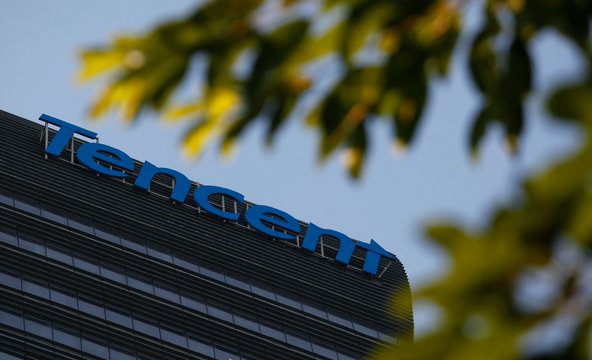 Bobby Yip/Reuters Tencent, one of China’s most valuable technology companies, owns WeChat, an online messaging service that’s growing in popularity across borders.
Bobby Yip/Reuters Tencent, one of China’s most valuable technology companies, owns WeChat, an online messaging service that’s growing in popularity across borders.
Asia is home to nearly half of the 2 billion Internet users in the world. It makes most of the hardware — laptops, smartphones, tablets and other gadgets — that is used to gain access to the Internet. In countries like South Korea and Japan, it has some of the fastest wired and wireless networks for carrying Internet traffic.
Yet in one aspect of the high-technology economy, Asia still struggles. It has yet to create an Internet company with the global scale of a Google, Facebook or Amazon. A report published Wednesday by the Economist Intelligence Unit, a research outfit affiliated with the Economist magazine, examines some of the possible reasons for this.
In some cases, the study says, Asian Internet companies have simply been held back by a lack of international ambition. In countries like China or India, domestic markets are so big that expanding abroad has not always been seen as a necessity. Other companies are reluctant to tackle the cultural challenges of operating in the West, according to the report, whose conclusions were reached after interviews with Internet entrepreneurs and others.
But that is starting to change. A new generation of Asian Web companies is seeing rapid cross-border growth — including, in some cases, in the West. These include online messaging services like Line, from Japan, and WeChat, which is owned by a Chinese Internet business, Tencent. Social gaming companies, like GungHo of Japan, have also achieved strong international growth.
Meanwhile, Alibaba, an e-commerce giant in China, has increasingly international ambitions, and is expected to offer stock to the public soon to finance them. Another Asian e-commerce company, Rakuten of Japan, has moved to expand abroad through acquisitions of companies like PriceMinister of France, and it has adopted English as its official language.
Yet these are the exceptions. The study says Asian Internet companies have been hobbled by factors like a lack of trusted online payment systems, a reluctance among Internet users to pay for digital content and restrictions on hiring foreign workers. The report also highlights burdensome regulations, including laws in countries like India and Thailand that make Internet companies responsible for the content posted on their sites.
“In many markets around the region, change must begin with a better understanding, on the part of governments, of the specific challenges facing Internet businesses, and a more general recognition of the growth opportunity that online commerce represents,” the authors write.
Asia is not alone in struggling to export home-grown Internet services. If anything, Europe has had an even harder time — despite lesser regulatory, linguistic and cultural hurdles to international expansion.
The report was sponsored by the Asia Internet Coalition, a group that was formed by five American Internet companies — Google, Facebook, Yahoo, eBay and Salesforce. The Economist Intelligence Unit says it was written independently. But some of the issues that are highlighted – especially the effect of regulation – do mirror the complaints from American Internet entrepreneurs and executives about operating in Asia.
In addition to the well-known restrictions that American Internet companies face in China, where services like Facebook and Twitter are blocked, Silicon Valley giants have also struggled in some other Asian markets. In South Korea, for example, the Internet search business is dominated by two local players, Naver and Daum, and not by Google.
The report makes clear recommendations for stimulating the Internet economy in Asia, urging governments there, for instance, to make regulatory changes to allow efficient online payments systems to develop.
Who would be the main beneficiaries? That is less clear.
Article source: http://bits.blogs.nytimes.com/2013/07/03/why-asian-internet-companies-struggle-to-become-global/?partner=rss&emc=rss